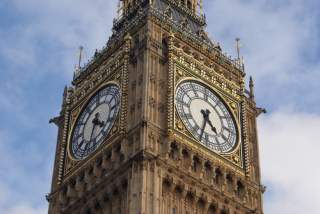The Case for Brexit
The United Kingdom needs to restore its national sovereignty by repudiating the European Union’s delusive attempt to create a postnational superstate.
THE VESTED interests that support British membership of the EU are large international law and consultancy firms, including City ones, which make a fortune arguing over every comma of regulations and contracts; large multi-national companies, which use EU regulation to keep small companies out of markets and decrease competition; and international corporations, which use various parts of the EU to avoid paying taxes elsewhere. There are also the political dreamers who fail to see the economic misery the EU has already caused millions of its citizens, not to mention its lack of both democracy and international influence. All these people and institutions expect David Cameron to conclude some deal with the EU by which the UK will be granted some nominal concessions (e.g. legal exemption from “ever-closer union” as an aim of membership) or trivial ones (permission to stop EU immigrants claiming welfare benefits, which very, very few claim anyway) before leading a campaign to persuade the British people to remain within a “reformed” EU. This will be an insult to our intelligence—a repeat of 1975—but the No campaign will point this out. There is always the remote possibility that Cameron will feel snubbed by the EU and advise people to vote in favor of an exit, in which case he would go down in history as a second Churchill. So far, however, Cameron has more closely resembled Anthony Trollope’s prime minister Mr. Daubeny in Phineas Redux, who declares, “See what we Conservatives can do. In fact we will conserve nothing when we find that you do not desire to have it conserved any longer.” Whether or not Cameron fails to conserve Britain’s traditional rights and prerogatives, however, may be becoming a moot point. Across Britain, the European dream touted for decades by its champions increasingly resembles a chimera.
Alan Sked is a professor of international history at the London School of Economics.
Image: Flickr/Daniel Coomber

